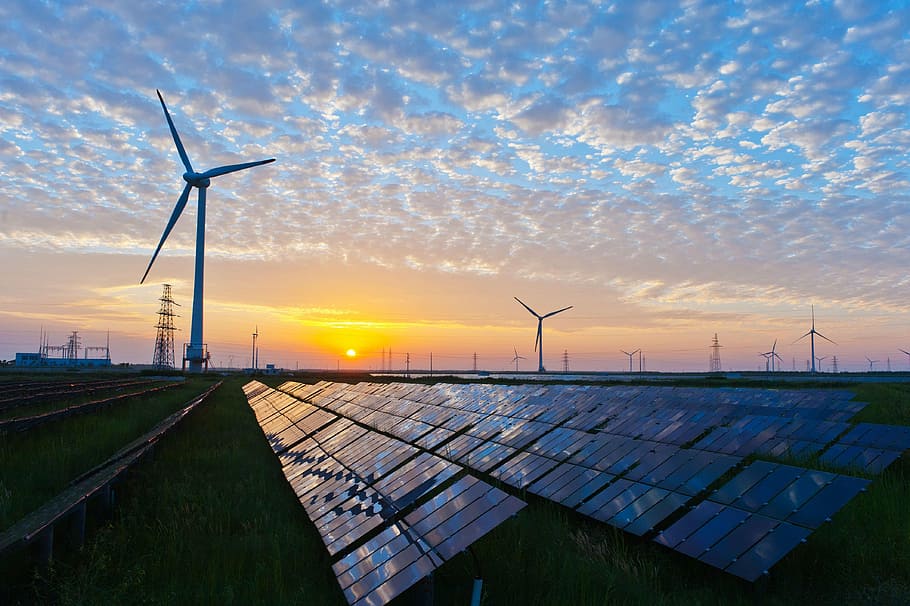
Octopus Renewables Infrastructure Trust (ORIT) has hailed the success of its inaugural year with a gross asset value of £441 million from 24 assets.
In its first full year results, the company highlighted that 100% of the net proceeds from its Initial Public Offering (IPO) have now been committed, with successful acquisitions including eight UK solar assets for a cash consideration of £144.3 million.
Similar to the company’s interim results, UK solar output fell slightly below budget despite the high irradiance. Overall for 2020, it was 1.4% below budget due to aging parts within its assets, with the company targeting upgrades through 2021.
“The things that drove the level of output ultimately were around the electrical equipment on some of the sites, particularly inverters and switchgear,” David Bird, investment director at ORIT told Solar Power Portal today. “Those are things that you expect to replace a number of times over the lifecycle of a certain site in any case, and were things that we'd identified in the acquisition diligence as things that were going to need improvement works.
“I think it's fair to say that the really sunny period we had in the first half of the year – and some of the particularly high temperatures we had in the early part of the summer – did bring some of that forward versus when we might have otherwise expected it, and that did create some limitation on how much we could benefit from the strong sunny conditions.”
Alongside its UK solar assets, ORIT also has onshore wind and solar sites in Sweden, France and Spain, with its net asset value (NAV) now coming in at £344 million or 98.3p as at 31 December 2020. This represents a total NAV return of 2.4% over the last year, and a total shareholder return of 15.9% for the company’s first year.
COVID-19 had a minimal impact of the company’s results overall, with the drop in power prices presenting the most significant factor for ORIT. This was mitigated somewhat by the timing of the company’s acquisitions, with the first in March meaning the lower power prices due to reduced demand as well as low gas prices following a mild winter were able to be factored in.
Power prices recovered going into the second half of the year, with prices back above £30/MWh in the summer in the UK, according to Chris Gaydon, investment director at ORIT. Towards the end of the year and into the beginning of 2021, near term prices have been “really, really strong” he continued, and the company has been able to lock in much of that upside.
The company’s proportion of fixed revenues over the next two years has increased from 64% as of June 2020, to 91% in its final year results, with substantial levels of 15 year fixed prices thanks to government-backed subsidies in the UK and France.
For the company’s eight UK solar assets, one is fixed till March 2022, while the remaining are fixed till September 2022.
“From our point of view, it's always been our intention to have strong levels of fixed percentage in that short term,” said Gaydon. “So in our IPO prospectus, we mentioned 85% fixed in the two years from IPO. It's a little bit higher than that right now- that's not a shifting target, it's just we've seen an opportunity and taken it.
“But we do expect to keep fixed prices at around that 80s and 90s percentage level in a two year basis, primarily because we know that it's really important for investors that they're seeing the dividend yield they expect as well as the longer term capital growth.”
For 2020, the company has achieved its target dividend of 3.18p per share and has reconfirmed its target of 5p per share for the year ending 31 December 2021.
There has been a procedural issue regarding the payment of the first interim dividend from the company, covering IPO on 10 December 2019 when the company raised £350 million to 30 June 2020.
“It's all quite technical and unexciting when you get into the weeds of the corporate law,” explained Bird. “I think it's important to note that there's been no hint of a problem with any of the distributable reserves or the profitability of the company. That's all been as entirely as expected.
“The technical point is, in order to pay first dividend before you've gotten to the point where you've now released full annual results, you have to prepare initial accounts. And you have to make sure that those accounts have been delivered to Companies House.
“All of that was done, but it was done particularly at a time where everyone was locked down, and Companies House was only able to receive paper deliveries, which is obviously not straightforward in the middle of lockdown. So there's just this uncertainty as to whether the accounts arrived when we delivered them in May, or whether they arrived at some point later.”
As such, due to an “abundance of caution” the directors are calling a general meeting to propose resolutions to rectify the issue.
Going forwards, ORIT is looking to continue to grow its portfolio over the coming year, with a particular focus on ESG.
“We've got a billion pounds in our pipeline, we continue to see lots of opportunities to invest into ready to build assets, which is an area that we've been targeting across the various markets including the UK, Europe and even potentially Australia at some point. And we look forward to growing the fund and delivering on our targets,” finished Gaydon.

